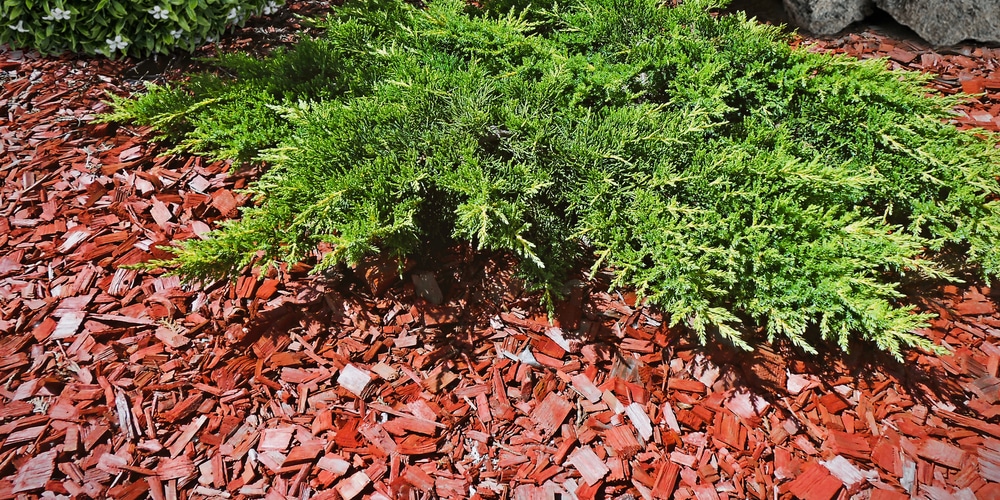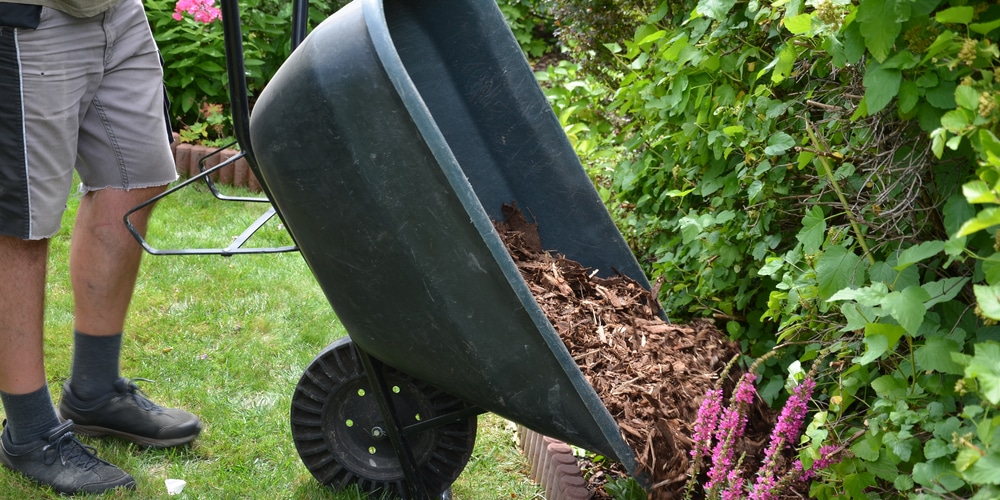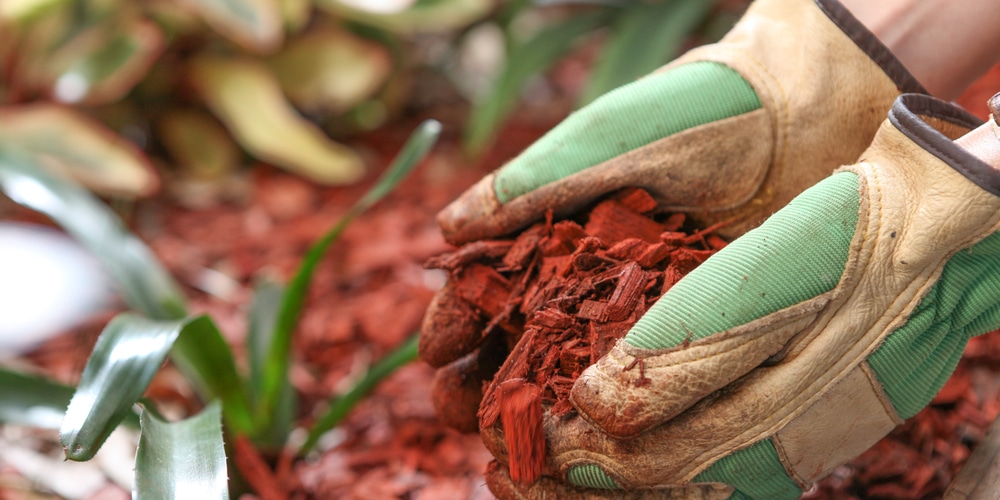Most gardening experts will tell you to mulch every chance you get. As it stands, mulch is said to be beneficial as it can insulate your plant’s roots against extreme hot or cold, and keep the soil moist and pesky weeds at bay. Mulch, however, falls into the same ‘too much is harmful’ maxim. So if you’re wondering, ‘can too much mulch kill plants?’, then read on below.
Can too much mulch kill plants?

Mulch has become a significant part of gardening and growing plants, and why not? It can keep your favorite plants, shrubs, and trees safe from extreme and fluctuating temperatures. More than that, mulch can protect the plant’s roots and allow it to stay hydrated.
However, too much mulch can definitely kill plants, and in several ways too. There’s only so much you can put before mulch becomes detrimental to your plant’s health. It’s worth noting that there’s a rule of inches to follow when applying mulch, as well as a way to properly put it around your plants.
Excessive mulch can cause the plant’s roots to suffocate, the soil to become too moist or soggy that it invites fungal diseases and harmful insects and organisms, and the plant itself to overheat. Improper application of mulch can also lead to root rot and the eventual death of your plant, shrub, or tree.
The Dangers of Too Much Mulch
Can Trap Heat
Mulching too much can lead to overheated and stressed-out plants. This is because the mulch forms a mini-greenhouse effect that’s similar to covering the plant with plastic- heat gets trapped in and gradually increases internal temperature.
High temperatures often lead to dehydrated plants, leaves with brown tips, and wilting, among others. This becomes especially pronounced during high noon and when the sun is shining directly on the plant and mulch.
The Roots Can Suffocate
You may not know this, but the roots of a plant will need to ‘breathe’ oxygen, which it usually gets from the soil. However, if you apply too much mulch then air won’t be able to get in, leading to plant deterioration.
Your plant’s roots can also suffer from rot when the soil stays moist for a long time. The effect of adding more mulch than what’s recommended usually leads to a sick plant that might die if you don’t save it.
Your Plant Doesn’t Get Water
Mulch, when piled on too thick, will present a hydrophobic problem. Fungi tend to grow and form a waterproof layer on top, and no matter how much you water it won’t penetrate the soil.
Even if you follow adequate watering your plants won’t get them (because of the layer of mulch), and eventually, your plant will die of drought. Also, organic mulch tends to change the soil’s pH if there’s too much of them, which means your plants won’t be able to absorb nutrients even if they’re present.
Diseases Can Get In More Easily
A constantly wet environment will not only lead to root rot but bacterial and fungal diseases as well. This may seem like the opposite of a mulch shield repelling water away from the soil, which is true to a degree. Water that’s already present will get locked in if you apply too much mulch, which in turn invites harmful organisms.
How to Apply Mulch Correctly on Your Plants
The recommended thickness of mulch on plants is anywhere between 1 to 3 inches and depending on the coarseness of the material.
Fine mulch or organic material that’s thin can be put on top of garden soil at around an inch or two, while coarse mulch, such as wood chips, cardboard pieces, and chopped leaves can be piled on about 3 to 4 inches.
It’s worth noting that you should not apply mulch directly around tree trunks or plant stems, mainly because the excessive moisture will invite pests and diseases and cause root and stem rot.
As a general rule, you should keep a distance of 3 to 4 inches away from the plant’s base, and around 12 to 18 inches away if mulching a tree.
Mulch should not be mixed or tilled with soil. Replace mulch with a fresh pile if the old mulch is too thin or decomposed to do its job.
Related article: Best Mulch For Water Drainage

